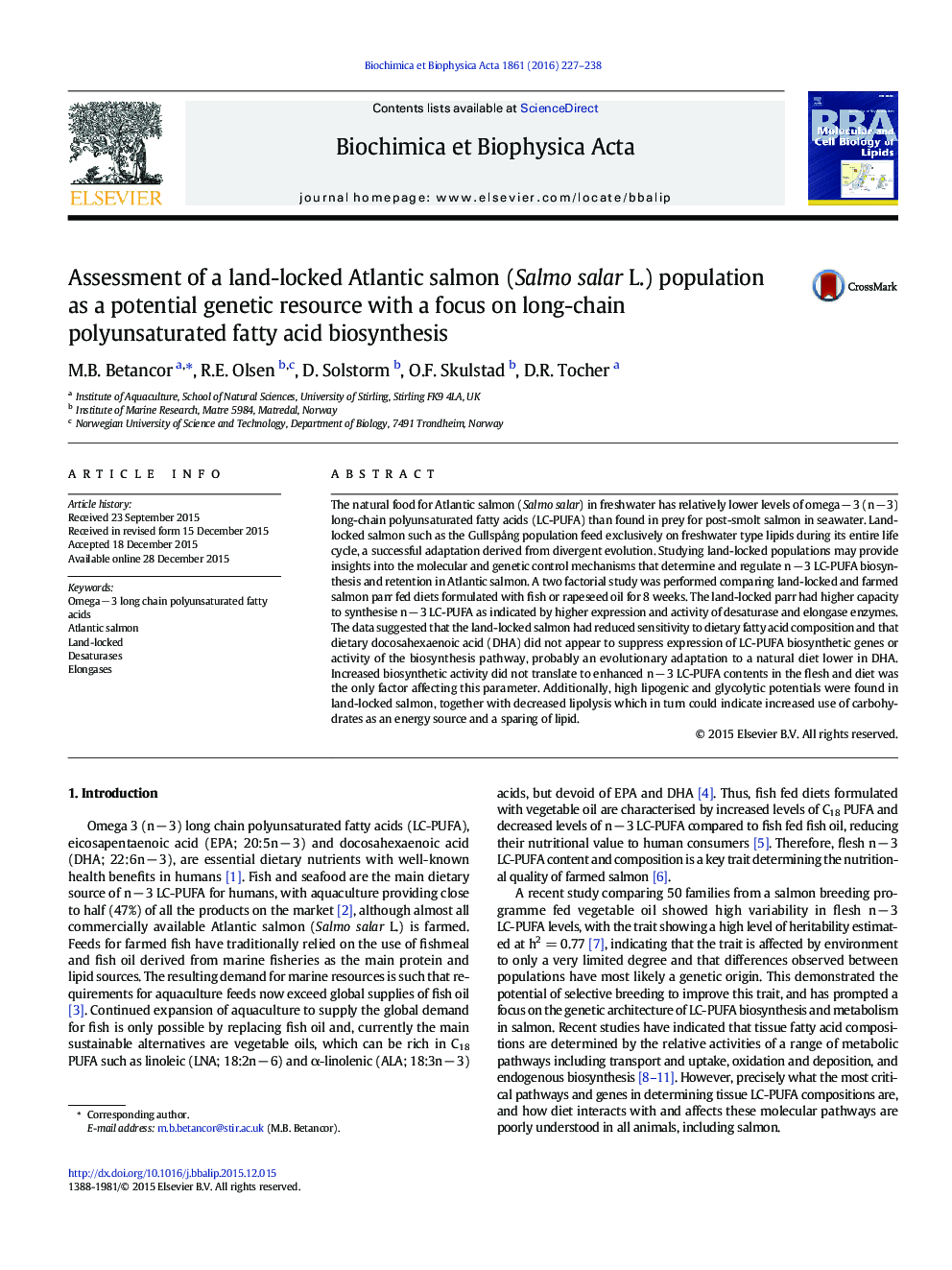| Article ID | Journal | Published Year | Pages | File Type |
|---|---|---|---|---|
| 1949061 | Biochimica et Biophysica Acta (BBA) - Molecular and Cell Biology of Lipids | 2016 | 12 Pages |
Abstract
The natural food for Atlantic salmon (Salmo salar) in freshwater has relatively lower levels of omega â 3 (n â 3) long-chain polyunsaturated fatty acids (LC-PUFA) than found in prey for post-smolt salmon in seawater. Land-locked salmon such as the GullspÃ¥ng population feed exclusively on freshwater type lipids during its entire life cycle, a successful adaptation derived from divergent evolution. Studying land-locked populations may provide insights into the molecular and genetic control mechanisms that determine and regulate n â 3 LC-PUFA biosynthesis and retention in Atlantic salmon. A two factorial study was performed comparing land-locked and farmed salmon parr fed diets formulated with fish or rapeseed oil for 8 weeks. The land-locked parr had higher capacity to synthesise n â 3 LC-PUFA as indicated by higher expression and activity of desaturase and elongase enzymes. The data suggested that the land-locked salmon had reduced sensitivity to dietary fatty acid composition and that dietary docosahexaenoic acid (DHA) did not appear to suppress expression of LC-PUFA biosynthetic genes or activity of the biosynthesis pathway, probably an evolutionary adaptation to a natural diet lower in DHA. Increased biosynthetic activity did not translate to enhanced n â 3 LC-PUFA contents in the flesh and diet was the only factor affecting this parameter. Additionally, high lipogenic and glycolytic potentials were found in land-locked salmon, together with decreased lipolysis which in turn could indicate increased use of carbohydrates as an energy source and a sparing of lipid.
Keywords
Related Topics
Life Sciences
Biochemistry, Genetics and Molecular Biology
Biochemistry
Authors
M.B. Betancor, R.E. Olsen, D. Solstorm, O.F. Skulstad, D.R. Tocher,
